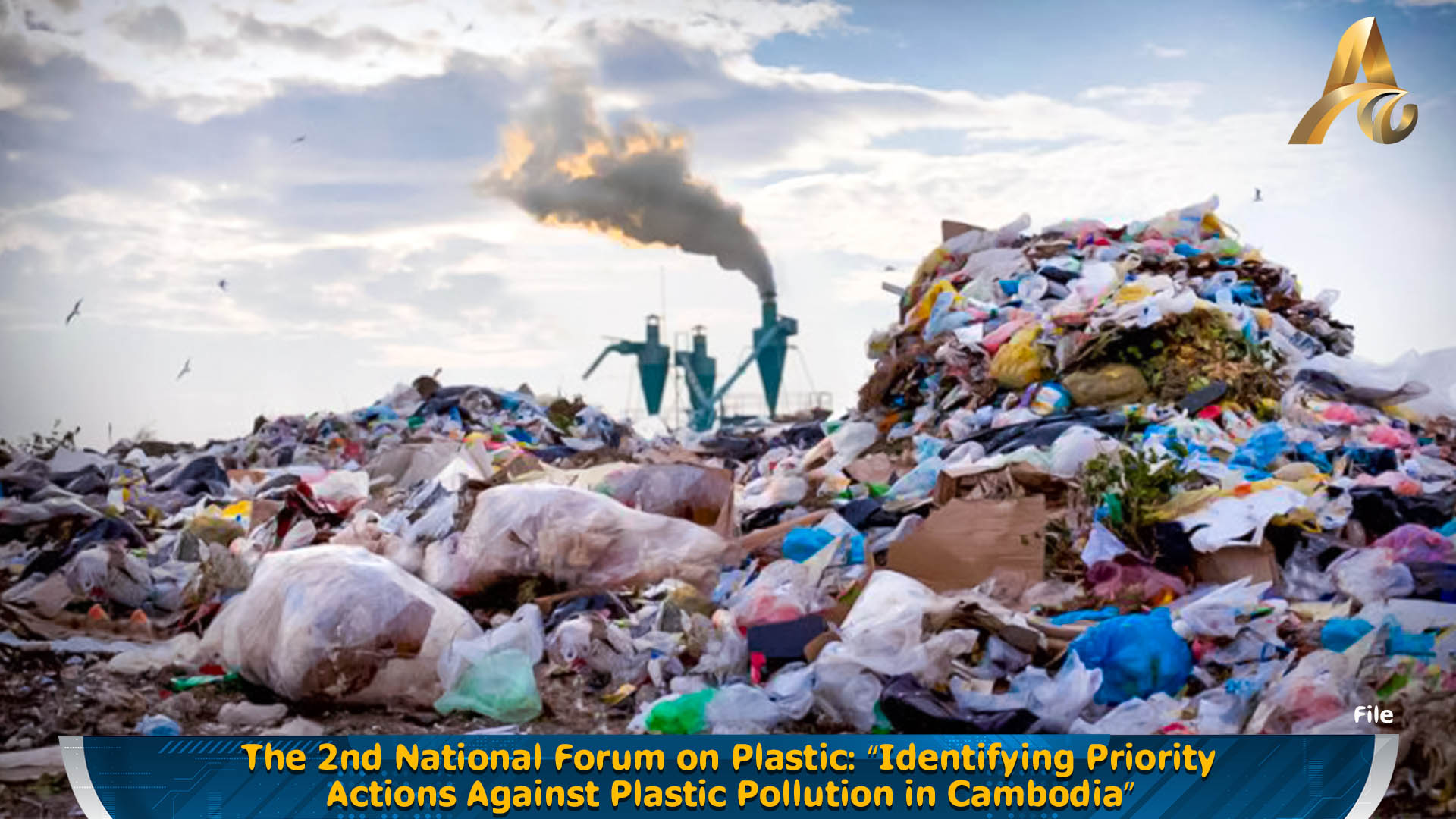
The 2nd National Forum on Plastic: “Identifying Priority Actions Against Plastic Pollution in Cambodia”
PHNOM PENH: On Wednesday, the Ministry of Environment (MoE), the Embassy of Japan and the United Nations Development Programme (UNDP) have organized the 2nd National Forum on Plastic: “Identifying Priority Actions Against Plastic Pollution in Cambodia.”
The worldwide total volume of plastic waste has reached 8.3 billion metric tons. Every year, over 8 million metric tons of plastic end up in waterways and eventually in the ocean, disturbing natural ecosystems, endangering wildlife and affecting other associated human activities and livelihoods, such as tourism and recreation, fishing, and navigation. When exposed to sunlight, oxidants, and physical stress, plastic debris is degraded over time and slowly breaks into smaller pieces known as micro-plastics. Micro-plastics kill marine animals, fish, and birds when they ingest them or when they get entangled in plastic materials. Micro-plastics also pollute our food chain as they accumulate in marine catches.
Plastic pollution is increasingly visible in Cambodia. To address this rising challenge, the Ministry of Environment has adopted in 2018 the 4Rs framework (Refuse, Reduce, Reuse, and Recycle) as a key policy agenda. The Secretary of State, Ministry of Environment Sao Sopheap has explained that “A range of measures were adopted to support the 4Rs framework. They include policies, regulations, awareness raising and outreach activities, and stakeholder engagement.”
The UNDP Resident Representative Ms. Alissar Chaker has commented that “Plastic in itself, is not bad, but plastic pollution is. Urgent action is needed to fight plastic debris polluting our oceans and choking our wildlife. Without collective action, studies predicted that by 2050 plastic could outnumber fish in the sea[3]. This will have dramatic consequences on food security and economies. Reducing plastic pollution is everybody’s business. It requires from everyone dedicated efforts and behaviour change, including, individuals, communities, small businesses, but most of all, it needs the active commitment of large companies and national authorities to the 4Rs.”
The Ambassador of Japan Mikami Masahiro has also stated that “drastic reductions in plastic usage poses a challenge to our everyday habits as we are used to its convenience. But this is the moment that we all need to recognize the longer-term economic, environmental and health costs of plastic pollution and take urgent actions to protect our environments and future.”
Mr. Sao Sopheap has concluded that “Fighting plastic pollution is not an easy task. However, the Ministry is deeply committed to making Cambodia, its cities, waterways, and landscapes clean and free from plastic pollution. I invite and encourage everyone to join our collective effort to preserve the cleanliness, natural beauty and diversity of our beloved country.





















